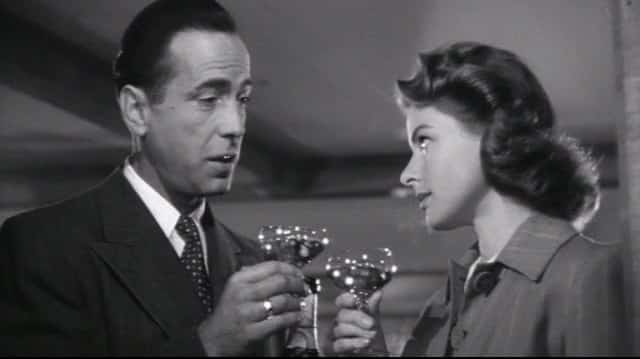"It can be particularly difficult to identify an alcoholism problem, given that societal perceptions of alcoholism are skewed and myths and stereotypes persist and prevent people from realizing when they need help"
The report, conducted by scientists at the University of Michigan, was based on interviews with more than 4.500 married or cohabiting couples that took place every two years over two decades.
The coveted compatibility
Inspired by a theory known as "partnership drinking", the main aim of the study was to examine alcohol use in couples and the health effects. "And we found, interestingly, that couples in which both reported drinking in the past three months lived longer than other couples who either reported no drinking or had discordant drinking habits in which one drank and the other one doesn't," explained lead author Dr Kira Birditt.
"If we drink 'too much' then our partner may have something to say about our behavior when we are drunk, or our health, drunkenness and spending. If we drink 'too little' then we might be seen as less fun or judgmental in some way"
The researchers concluded that having similar drinking habits is so crucial because it reflects other kinds of lifestyle compatibility. "We have also found in other studies that couples who drink together tend to have better relationship quality and this may be because it increases intimacy," added Dr Birditt.
"One of the indicators of a healthy relationship will be compatibility, and compatibility can be as simple as similar lifestyle choices," explains coach and behavioral scientist Katarina Polonska.
"Someone who chooses to go out and have fun every Friday night and come home at 5am is likely to have a lot less in common with someone who wants to spend a night drinking chamomile tea on the sofa every Friday. The more affinities there are in the habits, the greater the identification there is in the compatibility of the way of life.'
Or just taking some time off?
The sooner you realize this, the better. "My ex was a heavy drinker and I broke up with him partly because of that," says Yaz*, 56. “He had the characteristics of an alcoholic: lying, selling valuables when I went on a trip for 18 months. I recently googled him and saw that he had lost his job due to spending £300 a week on alcohol and stealing from his customers. I was not surprised and saddened, of course, as he suffered a stroke due to this stress."
However, it can be particularly difficult to identify an alcoholism problem, given that societal perceptions of alcoholism are skewed, and myths and stereotypes persist and prevent people from realizing when they need help.
According to the charity Drink Aware, signs of alcoholism include reduced control over alcohol use, making drinking increasingly a priority in your daily life and experiencing unwanted physical or mental effects from drinking.
But what happens when someone recognizes this in themselves and, after deciding to stay sober, starts dating people who drink? "I've never actually dated someone who's sober," says Bella*, 29, who quit drinking in 2018.
“On a first date, I always order a Diet Coke and people usually don't ask me about it. But in the second, they ask, "So, are you trying 'dry January' [the month-long sobriety movement]?" Or are you just taking some time?'
"I'm quite insecure about it with strangers, especially when they seem foreign to the idea of sobriety. So I often lie and tell them I've been drinking for a year or two, even though I've been six years sober."
Less fun?
Even those who don't drink heavily or struggle with addiction can experience the incompatibility of drinking, and this is partly because of how we judge other people's drinking habits.
"If we drink more or less alcohol than someone else, then this can come with a whole range of explicit or implicit criticism," says counselor Georgina Sturmer.
"If we drink 'too much' then our partner may have something to say about our behavior when we are drunk, or our health, drunkenness and spending. If we drink 'too little' then we might be seen as less fun or judgmental in some way."
For some couples, this is an ongoing issue. "My partner hardly drinks at all, but I love booze, and it causes quite a bit of conflict in our relationship," admits Jess*, 46.
“When I was single, I used to go to pubs with a book by myself because I love them so much, and I couldn't wait to find someone to share that with. But even though our first dates were in pubs, it turns out he doesn't really like pubs, or booze - apparently he ordered water instead of the G&Ts I brought him.'
Jess has been with her boyfriend for nine years, but still struggles with incompatibility. “When I drink at home, it's always accompanied by a fair amount of criticism and whining. It's probably the thing we fight about the most, because it drives me crazy, and I'd love to be able to go out together instead of drinking alone at home with him looking down on me."
*Names have been changed | With information from The Independent | Topic Photo: Casablanca – A Lesson In Storytelling | YouTube
